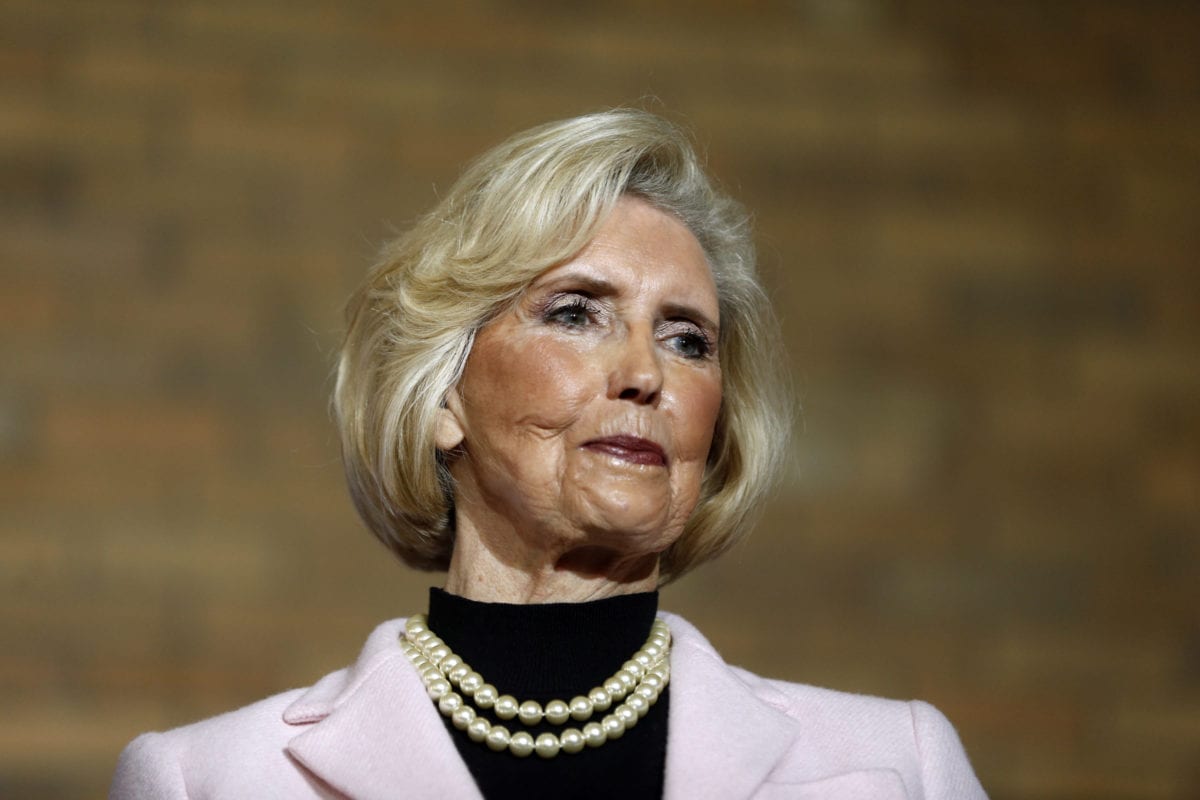This story was co-published with The Washington Post.
Lilly Ledbetter, whose name became synonymous with the fight for equal pay, is endorsing Joe Biden for president on Tuesday as the country marks Equal Pay Day. She cited the former vice president’s decades of experience in Washington, including his sponsorship of the Violence Against Women Act as a senator and his work in the Obama administration to promote women’s equality.
Ledbetter, 81, said she supported Biden running for president before he became a candidate, telling him in 2018 when he campaigned for Doug Jones for Senate in Alabama that she would back him if he ever ran.
“He has so much experience, and that means a lot, because the president, that’s not a learning job,” Ledbetter said. “The country has seen that these last three years now. We need someone that knows how Congress and the presidency works.”
Ledbetter said she was courted by multiple candidates during the 2020 campaign but turned them down, privately citing her commitment to Biden. She declined to name names, but mentioned Sen. Amy Klobuchar (D-Minn.) as someone who “knows how the government is supposed to work,” adding that she “wouldn’t be upset” if Biden named the senator as his running mate, although she didn’t go so far as to suggest he should.
“I do not want to influence the vice president,” Ledbetter said, adding that “it would be exciting” to see a woman make history as the first female vice president. Biden recently pledged to select a woman as his running mate.
“I feel like women are still behind,” she said. “We did not start getting better jobs and pay until we started fighting for them.”
Ledbetter said too many employers “still have the perception, ‘If it’s a woman, pay her less. She’s not worth what a man is. He’s got a family’ — like she doesn’t. If [paycheck fairness] had been the law back in my day, I could have found out exactly how I stood.”
Ledbetter, an Alabama native, took a job at the Goodyear Tire & Rubber Co. in Gadsden in 1979 as the only female overnight supervisor. She began her career earning the same salary as her male colleagues, but by the time she retired, she earned less than any of the men in the same role.
After discovering this, Ledbetter filed a complaint in 1998 with the Equal Employment Opportunity Commission and later initiated a lawsuit alleging pay discrimination. Her case went to the Supreme Court and in 2007, the court ruled against Ledbetter in a 5-4 decision, saying her claim was outdated and overturning a lower court’s decision to award her compensation.
After the ruling, Ledbetter became an activist for equal pay, and in 2009, the Lilly Ledbetter Fair Pay Act became the first bill President Barack Obama signed into law. She continues to lobby for equal pay nationwide and is a member of the National Women’s Hall of Fame.
Although she normally spends Equal Pay Day making big speeches in front of large crowds, Ledbetter is grounded this year for the same reason as millions of Americans: the coronavirus shutdown.
She said the pandemic has brought the wage gap and gendered roles in the workplace into sharp relief. “As the majority of the health-care workforce, women are on the front lines of this crisis, at times putting their own health at risk or separating from their families, while taking care of our country’s sick and vulnerable,” she said. “And, as this crisis forces women to work from home, work fewer hours, lose their jobs, many at the same time are taking care of their families or trying to teach their kids at home.”
Ledbetter urged Americans to build on past progress.
“We want equal pay, we want our place in life, we can earn it, we don’t want a gift,” she said, adding that she thinks the current administration has not done anything to address equal pay. “So much work was done and then it just stopped. There’s nothing to encourage the support of women and their pay, there’s not been any progress made in paycheck fairness.”
According to the National Women’s Law Center, American women working full time are paid about 80 cents for every dollar a man makes. Black women make 62 cents for every dollar a White man makes; for Latinas, that number is 54 cents and for Native women, it is 57 cents
Ledbetter hopes equal pay is an issue that motivates women to vote this fall. She also plans to be a surrogate for Biden on the campaign trail, after the pandemic subsides.
“He realizes the sacrifices that have been made, but yet how far away [women] still are in the economy and our positions in life,” she said. “He knows how I feel.”






